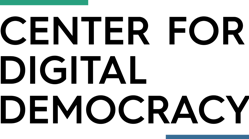Platforms, Privacy, Pandemic and Data Profiteering: The COVID-19 crisis further fuels unaccountable growth from the digital tech and media industries
By Jeffrey Chester
The COVID-19 pandemic is a profound global public health crisis that requires our upmost attention: to stem its deadly tide and rebuild the global health system so we do not experience such a dire situation in the future. It also demands that we ensure the U.S. has a digital media system that is democratic, accountable, and one that both provides public services and protects privacy.
The virus is profoundly accelerating our reliance on digital media worldwide, ushering (link is external) in “a new landscape in terms of how shoppers are buying and how they are behaving online and offline.” Leading platforms—Amazon, Facebook and Google—as well as many major ecommerce and social media sites, video streaming services, gaming apps, and the like—are witnessing a flood of people attempting to research health concerns, order groceries and supplies, view entertainment and engage in communication with friends and family. According to a marketing industry report (link is external), “nearly 90% of consumers have changed their behavior because of COVID-19.” More data (link is external) about our health concerns, kids, financial status, products we buy and more are flowing into the databases of the leading digital media companies. The pandemic will further strengthen their power as they leverage all the additional personal information they are currently capturing as a consequence of the pandemic. This also poses a further threat to the privacy of Americans who are especially dependent on online services if they are to survive.
The pandemic is accelerating societal changes (link is external) in our relationship to the Internet. For example, marketers predict that we are witnessing the emergence of an experience they call the “fortress home”—as “consumer psychology shifts into an extreme form of cocooning.” The move to online buying via ecommerce—versus going to a physical store—will become an even more dominant consumer behavior. So, too, will in-home media consumption increase, especially the reliance on streaming (“OTT”) video. Marketers are closely examining all these pandemic-related developments using a global lens—since the digital behaviors of all consumers—from China to the U.S.—have so many commonalities. For example, Nielsen has identified six (link is external) “consumer behavior thresholds” that reveal virus-influenced consumer buying behaviors, such as “quarantined living preparation” and “restricted living.” A host of sites are now regularly reporting how the pandemic impacts the public, and what it means for marketing and major brands. See, for example, Ipsos (link is external), Comscore (link is external), Nielsen (link is external), Kantar (link is external), and the Advertising Research Foundation (ARF (link is external)).
In addition to the expanded market power of the giants, there are also growing threats to our privacy from surveillance by both government (link is external) and the commercial sector. Marketers are touting how all the real-time geolocation data that is continuously mined from our mobile devices, wearables (link is external) and “apps” can help public health experts better respond to the virus and similar threats. At a recent (link is external) Advertising Research Foundation townhall on the virus it was noted that “the location-based data that brand stewards have found useful in recent years to deliver right-time/right-place messages has ‘gone from being useful that helps businesses sell a little bit more’ to truly being a community and public-health tool.” Marketers will claim that they have to track all our moves because it’s in the national interest in order to sanction the rapid expansion of geo-surveillance (link is external) in all areas of our lives. They are positioning themselves to be politically rewarded for their work on the pandemic, hoping it will immunize them from the growing criticism about their monopolistic and anti-consumer privacy behaviors. Amazon, Facebook, Google, Snapchat and various “Big Data” digital marketing companies announced (link is external), for example, a COVID-19 initiative with the White House and CDC. Brokered by the Ad Council, it will unleash various data-profiling technologies, influencer marketing, and powerful consumer targeting engines to ensure Americans receive information about the virus. (At the same time, brands are worried about having their content appear alongside information about the coronavirus, adopting new (link is external) “brand safety” tools that can “blacklist” news and other online sites. This means that the funding for journalism and public safety information becomes threatened (link is external) because advertisers wish to place their own interests first.)
But the tactics (link is external) now sanctioned by the White House are the exact same ones that must be addressed in any legislation that effectively protects our privacy online. We believe that the leading online companies should not be permitted to excessively enrich themselves during this moment by gathering even more information on the public. They will mine this information for insights that enable them to better understand our private health needs and financial status. They will know more about the online behaviors of our children, grandparents and many others. Congress should enact protections that ensure that the data gathered during this unprecedented public health emergency are limited in how they can be used. It should also examine how the pandemic is furthering the market power of a handful of platforms and ecommerce companies, to ensure there is a fair marketplace accessible to the public. It’s also evident there must be free or inexpensively priced broadband for all. How well we address the role of the large online companies during this period will help determine our ability to respond to future crises, as well as the impact of these companies on our democracy.

